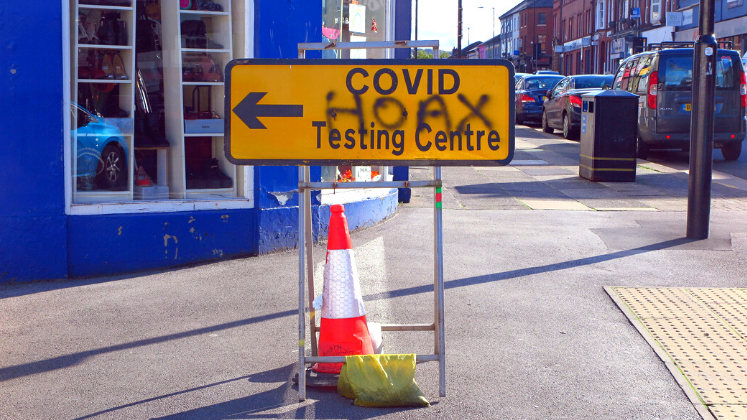COVID-19 has led to rapid and open sharing of research outputs. But will this new, radically open research communications paradigm result in permanent change? Confederation of Open Access Repositories (COAR) executive board members, Kathleen Shearer, Eloy Rodrigues, Bianca Amaro, Wolfram Horstmann, William Nixon, Daisy Selematsela, Martha Whitehead and Kazu Yamaji, argue that the new research climate proves that longstanding shortcomings regarding the time and cost of research can be overcome with enough political will, and that maintaining a culture of open science going forward is necessary to address the big social problems of our time.
Our current research and social context – the coronavirus pandemic, economic upheaval, climate change, racial injustice – requires timely and reliable research results, shared equitably by, and with, all parts of the world.
The status quo for research communications
The mainstream system for research communications, which was built in the print age and has not evolved to meet the changing needs of the research community, is far from ideal and does not serve well the needs of research or society. The shortcomings are well known and include:
- Long delays from submission to publication for articles and monographs
- High costs for both to access publications through subscriptions, and to publish through article processing charges
- Overlooked contributions with too much focus on the article or book as the final research product, rather than recognizing the full range of relevant contributions, such as data, metadata, preprints, and protocols
- Lack of transparency in peer review and quality control mechanisms
- Significant biases towards the interests of the global north and trendy research topics
These issues contribute to a sub-optimal communications milieu in which research efforts are hampered because investigators cannot access the full corpus of literature in their field, cannot text and data mine to extract new knowledge; and research findings are not available and cannot be readily adopted by other actors in society.
Despite widespread recognition of these problems, they have endured for many years, in large part because research communications has been predominantly outsourced to profit-driven commercial entities, whose missions do not align with those of the research community or the public at large.
How COVID-19 has changed the landscape?
The COVID-19 pandemic, however, has demonstrated that with enough political will, these issues can be overcome.
The intensity and volume of research related to COVID-19 has been unprecedented and governments and funders around the world have been calling for rapid and open sharing of research outputs.
The response has been remarkable and has led to unparalleled scientific progress. Early studies on the availability of COVID-19 research papers show that, while not all articles are open access with appropriate reuse licenses, the vast majority are freely available. Lag times from article submission to publication for COVID-19 articles have been greatly accelerated compared to the norm. And, both preprint and data sharing activities have intensified significantly. The issue of quality assurance and public confidence in research outcomes is a critical one. While some concerns have been expressed about whether quality control of publications and data is being compromised because of the speed with which research outcomes are being shared, it also seems to be the case that widespread openness can lead to increased scientific scrutiny and more rapid identification of inaccurate research conclusions. This shows that quality assurance can be implemented in such an environment.
Research communications has been predominantly outsourced to profit-driven commercial entities, whose missions do not align with those of the research community or the public at large.
But will this new, radically open research communications paradigm result in permanent change?
Many subscription publishers have temporarily made their COVID-19 content openly available, or are providing special conditions for libraries to allow researchers to access relevant collections, demonstrating that there is a willingness to adapt when there is a crisis of this proportion. However, some have already started to move their content back behind paywalls, or have indicated that they will do so in the near future.
COVID-19 has provided us with a relevant and practical example of the benefits of open science. The current moment should act as a catalyst for transforming the current flawed system of research communications into a global knowledge commons; a commons that is more efficient, inclusive, and governed by the scholarly community; a commons with no barriers to access or to publish research.
The global knowledge commons and how to get there
Transforming the system does not mean starting from scratch. We already have many elements of the global knowledge commons in place. There are thousands of repositories around the world, mostly hosted by long-lived and trusted organizations such as universities and research institutions, that collect and provide access to a wide variety of research outputs. And COAR is developing an overlay model that will integrate peer review and other types of evaluation services into the distributed international repository and preprint network, which will soon be piloted by several organizations.
We must start now to shift our resources towards open, community-based infrastructures and services whose values align with those of research and society.
These repositories are part of a substantial and growing community of open infrastructures that are committed to fair and inclusive open access, open data and open science. They exist alongside other services such as open and community-based journals and hosting services like Redalyc, OpenEdition, and African Journals Online (along with many others around the world), national and regional indexing and discovery networks like OpenAIRE, and LA Referencia, as well as other open tools and services. Together, these community-based, open infrastructures, which cost a fraction of the funds spent on the large commercial publishers, form the roots of a thriving and sustainable scholarly communications ecosystem.
Let’s build on the lessons we’ve learned through the COVID-19 pandemic. Or, in the words of Robert-Jan Smits, former director general of research and innovation at the European Commission, “Let’s turn this abnormal situation, in which COVID-19-relevant papers and data are shared widely, into a normal situation”.
We must start now to shift our resources towards open, community-based infrastructures and services whose values align with those of research and society. Let us not go back to business as usual once the pandemic is over. The problems facing the world today are just too important.
COAR– Confederation of Open Access Repositories- is an international association with members and partners from over 50 countries around the world representing libraries, universities, research institutions, government funders and others. COAR’s aim is to develop a global knowledge commons where all valuable research contributions can be accessed and shared.
Note: This article gives the views of the author, and not the position of the LSE Impact Blog, nor of the London School of Economics. Please review our comments policy if you have any concerns on posting a comment below.
Photo by iMattSmart via Unsplash









In order to change the present system, we need to redirect money. There is plenty of money in the system, only part of it needs to be used on community-centered solutions. It is naive to think that commercial entities could ever be completely excluded from scholarly communication. But if there is no enough funding for alternative, community based solutions, the academic world will forever be dependent on commercial entities, both financially, and also in that sense that only commercially profitable services will be available. There should be a balance of commercial and community based services, and that balance means that some money – probably only a fraction spent on commercial products – should be spent on community projects and services.
All mouth, no trousers. Libraries have been saying the same thing for years, while continuing to fund the big deals. And now they are busy building open access deals with the same publishers, making sure to cement the publishers’ stranglehold of scholarly communication. Libraries should not pay open access publication fees
only under very restrictive conditions, and should stop paying for subscription to journals.